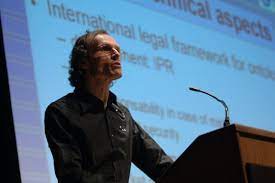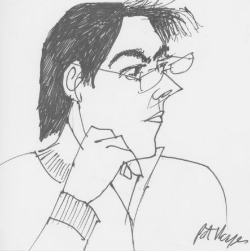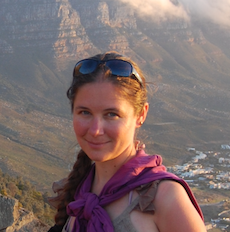Basic Formal Ontology Summit Meeting
Announcement
The 2023 Basic Formal Ontology Summit Meeting will be held May 23rd-25th, 2023. The aims of the meeting are:
- to bring together researchers who have played an important role in the development and application of BFO, to highlight the practical impact and value of using BFO as a top-level architecture,
- to identify and work through outstanding issues experienced by users of BFO,
- to begin the creation of a set of BFO-conformant ontologies in the domain of government policy and data
Subsidiary goals are:
- to showcase real-world examples of incorporation of BFO in development pipelines and their practical impacts
- to promote collaboration across different groups of BFO users
- to share case studies illustrating challenges arising in BFO use, evaluation, interpretation, and revision
- to reveal differences in interpretation of BFO terms and relations, and of associated strategies for using BFO
- to share strategies of evaluation of BFO from different user bases
- to identify and disseminate strategies for improving the quality of BFO-based ontologies
Paper and Workshop Presentations
Those wishing to present a paper at this meeting, including at the workshops mentioned below, should submit a short abstract (~200 words) to John Beverley [1] before February 15th. Confirmation of acceptance will be issued by February 28th. Paper presentations are especially welcome on applications, uses cases, and practical aspects of employing BFO. See below for more descriptions of desirable presentation topics.
Those wishing to present a workshop should contact Barry Smith [2] as soon as possible. Note that we are planning for a meeting consisting entirely of plenary sessions. Hence, the number of workshops will be kept to a minimum.
Workshops chairs will decide each workshop structure (for example: panel, successive talks, one talk + responses, etc.); each workshop will be approximately 1-2 hours in length.
Registration
Registration will be made available online shortly, with the following early-bird fees:
- Students - None
- Junior Faculty/Postdocs - $100
- Senior Faculty, Government, Industry - $300
These fees are designed primarily to cover venue and refreshment costs.
We are currently exploring possibilities for zoom participation, but given the goals of the event, strongly encourage in-person participation.
Keynote Speakers
We are happy to announce four keynote speakers (information will be updated as it becomes available).

Division Chief, Biomedical Ontology
Department of Biomedical Informatics
University at Buffalo, Jacobs School of Medicine & Biomedical Sciences
The first keynote will be given by Werner Ceusters, who will speak on
The Axiomatization of BFO 2020: The Good, The Bad, and The Ugly Abstract

Director of Clinical and Translational Data Exchange
University at Buffalo, School of Dental Medicine
and will be titled Time Matters

Institute for Intelligent Cooperating Systems, Otto-von-Guricke University Magdeburg
and will be titled BFO-FOL for Domain Ontologies

Editor-in-Chief of Applied Ontology, Assistant Professor of Medical Knowledge and Decision Support, Institute for Implementation Science in Health Care, Faculty of Medicine, University of Zurich
Vice-Director, School of Medicine, University of St. Gallen
,
Field Reports from Using BFO in Scientific Ontologies

Division Chief, US Border Patrol
For a Government Ontology
Dates
May 23 (Tuesday) - 25 (Thursday), 2023
Venue
Main Ballroom of the University at Buffalo Center for Tomorrow
The Center for Tomorrow, located at the University at Buffalo’s Amherst campus, houses a 350-seat conference area that can be converted into smaller meeting rooms, a reception and display area, a food preparation and serving facility, and a 7,500-square-foot open courtyard.
Hotel

Amherst, NY 14226
1 Flint Road
Attendees are encouraged to book rooms at Comfort Inn University by following the link here.
Comfort Inn University is a four minute walk from the BFO-SM venue and guests will be provided coffee and breakfast each morning.
Tentative Schedule
Day 1
Start Time: 9:00am
- Keynote: Alan Ruttenberg: Time Matters
- Keynote: Werner Ceusters: The Axiomatization of BFO 2020: The Good, The Bad, and The Ugly
- Keynote: Fabian Neuhaus: BFO-FOL for Domain Ontologies
- Roundtable: The Future of BFO: What Needs to be Changed? (Chair - John Beverley)
- Workshop: BFO-ISO (Chair - Barry Smith)
- Potential topics include but are not limited to:
- Background and significance
- Proposals for future revisions and extensions
- Relationship to other standards
- Potential topics include but are not limited to:
- Workshop: BFO-2020 Subgroup (Chair - Amelia Kahn)
- Sessions
- "Temporal Annotations", Dave Lutz
- "Time and the Continuant: Modeling Temporal Data in BFO-OWL", Ludger Jansen Abstract
- Sessions
Day 2
- Keynote: Janna Hastings, Field Reports from Using BFO in Scientific Ontologies
- Workshop: Applications of BFO in Industry (Chair - John Beverley)
- Sessions
- Workshop: Applications of BFO in Biomedicine (Chair - John Beverley)
- Sessions
- "Ontologies for a Learning Health System: Application to PARS3 and theoretical challenges" Adrien Barton, Paul Fabry, Jean-François Ethier Abstract
- Workshop: Economics and Accounting Ontology (Chairs - Bill McCarthy and Graham Gal)
- Further potential topics include but are not limited to:
- Demonstrations of benefits associated with using BFO as a top-level architecture
- Examples of BFO-based temporal reasoning
- Comparisons of the use of BFO with other upper-level ontologies in industry
- Further potential topics include but are not limited to:
Day 3: Government Ontology
- Keynote: Ryan Riccucci: For a Government Ontology
- Roundtable: Current & Historical Experiences with Government Ontology Projects (Chair - Ryan Riccucci)
- Roundtable: Overview of Federal Ontology Efforts (Chair - Ryan Riccucci)
- Workshop: Buffalo and Toronto Ontology Group (BoaT) (Chair - Mark Fox)
End Time: 4:00pm
Organizers
John Beverley (University of Buffalo, Buffalo, NY), [3]
Barry Smith (University at Buffalo, Buffalo, NY), [4]
Participants will include:
Adrien Barton (CNRS, IRIT, Toulouse)
John Beverley (UB)
Andrea Borghini (U Milan)
Werner Ceusters (UB)
Aaron Damiano (Rich Industries, Buffalo)
Bill Duncan (U Florida)
Mark Fox (U Toronto)
Bart Gajderowicz (U Toronto)
Graham Gal (UMass, Amherst)
Pierre Grenon (GSK)
Janna Hastings (U St Gallen / U Zurich)
Yongqun "Oliver" He (U Michigan, Ann Arbor)
William Hogan (U Florida)
Anthony Huffman
Amelia Kahn (UB)
Megan Katsumi (U Toronto)
Matthew Lange (Center for Food Ontology Operability)
Rasmus Larsen (U Toronto)
David Limbaugh (CUBRC)
Dave Lutz (SAIC)
William McCarthy (Michigan State University)
Eric Merrell (Johns Hopkins APL)
Fabian Neuhaus (U Magdeburg)
Neil Otte (Johns Hopkins APL)
Nicolas Piras (U Milan)
Ryan Riccucci (Customs and Border Patrol HQ, Tucson)
Daniele Rosu (U Toronto)
Ron Rudnicki (CUBRC)
Alan Ruttenberg (UB)
Gloria Sanso (UB)
Selja Seppala (University College Cork)
Barry Smith (UB)
Giorgio Ubbiali (U Milan)
Jonathan Vajda (UB)